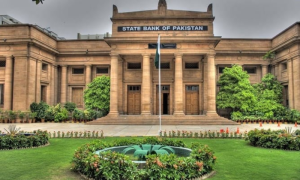ISLAMABAD: The Asian Development Bank (ADB) on Friday approved capital management reforms to unlock $100 billion in new funding capacity over the next decade to address the overlapping and simultaneous crises in the region.
The expansion of available funds would be further influenced through activating private and domestic capital to move from the billions to trillions needed to address the climate crisis.
According to ADB press statement received here, the reforms were introduced through an update of the Capital Adequacy Framework (CAF) of ADB.
Accordingly, they expand the bank’s annual new commitments capacity to over $36 billion, i.e., an increase of approximately $10 billion (about 40%). The expansion is achieved by adjusting ADB’s prudential level of capitalization while maintaining its overall risk appetite.
The reforms also provide a Countercyclical Lending Buffer to assist ADB developing member countries (DMCs) facing unexpected and unprecedented crises.
These measures would enable ADB to provide about $360 billion of its own financing to its member countries and private sector customers over the next decade, are designed to ensure ADB maintains its AAA credit rating and its ability to provide DMCs with funding at low cost and with long maturities.
The reforms further protect ADB’s AAA credit rating through the introduction of a recovery plan that would prevent capital erosion during periods of financial stress as the capital adequacy framework of ADB is reviewed every 3 years.
ADB’s President on Efforts in Asia and Pacific
“These key reforms would significantly expand ADB’s ability to support a broad range of critical development efforts across the Pacific and Asia, including greater concessional resources for our vulnerable members,” said ADB President Masatsugu Asakawa.
He further said that the recent decision was part of ADB’s response to the call for multilateral development banks (MDBs) to do more with ADB’s resources and faster, adding that these resources would help the region to manage a complex set of overlapping crises, address gender inequality, and provide for basic needs in addressing the existential challenge of climate change.
Private capital mobilization would play a crucial role in leveraging billions to trillions, by expanding private sector involvement in the development agenda.
The statement further maintained that different economies in the world must also mobilize more tax revenue, modernize tax authorities through digitalization, and cooperate to ensure a fair and well-functioning international tax system.
Achieving SDGs
It further added that domestic resource mobilization was a key in the effort to address debt sustainability and to achieve the Sustainable Development Goals (SDGs), adding that ADB established the Asia Pacific Tax Hub in the year 2021 to provide an open and inclusive platform for strategic policy dialogue, knowledge sharing, and development coordination among ADB, its members, and development partners.
Unfortunately, poor and vulnerable communities in Asia and the Pacific are acutely exposed to escalating and interconnected crises that jeopardize their livelihoods, health, and educational requirements, it said.
In addition, about 155 million people, or 3.9% of the region’s population, lived in extreme poverty in 2022 and many, particularly women, face a cost-of-living crisis that has made food and other essential commodities and services unaffordable and inaccessible.

























